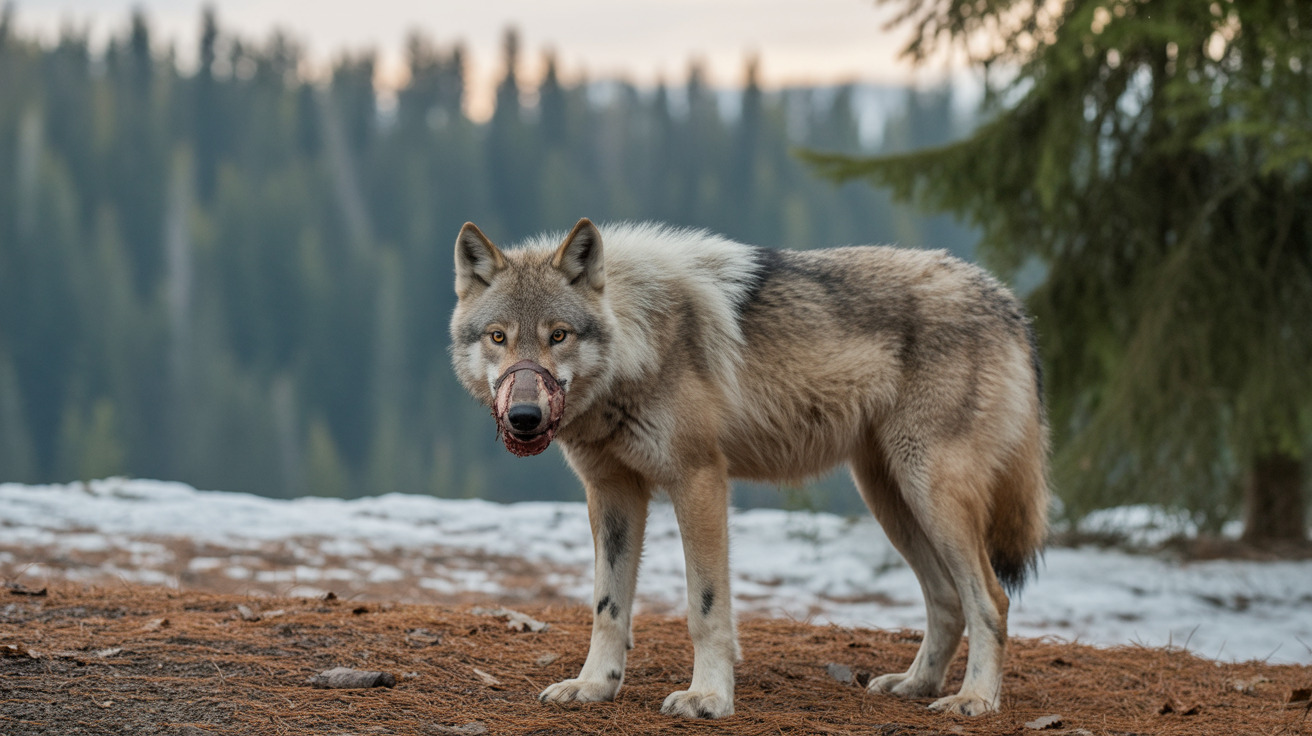A Wyoming man at the center of a controversial wolf cruelty incident has entered a not guilty plea to felony animal cruelty charges, marking a significant moment in the ongoing debate over predator protection Wyoming. The case has sparked national attention and prompted lawmakers to reconsider existing wildlife protection measures, as advocates push for stronger legal penalties for animal cruelty against wild predators.
The defendant's court appearance represents the culmination of months of legal proceedings that began with what many considered an inadequate initial response to allegations of extreme wildlife mistreatment. The case has become a catalyst for examining Wyoming animal cruelty laws and their effectiveness in protecting wild animals from prolonged suffering.
Background of the Wolf Cruelty Case Wyoming
According to court documents, the defendant allegedly struck a wolf with a snowmobile, then proceeded to muzzle the injured animal and bring it into a local bar. The incident, which reportedly involved parading the suffering wolf in front of patrons, concluded when the man later shot the animal. Initially, authorities issued only a $250 fine for the incident, a response that generated widespread criticism and calls for stronger enforcement.
The case gained international attention when details emerged about the alleged mistreatment, prompting advocacy groups and concerned citizens to demand more serious charges. A grand jury later indicted the man on the felony animal cruelty charge, representing a significant escalation in the legal response to wildlife abuse cases.
Wyoming Wildlife Regulations Under Scrutiny
This high-profile incident has exposed gaps in Wyoming wildlife regulations regarding the treatment of predators. While Wyoming law generally permits the killing of wolves classified as predatory animals in most areas of the state, the manner of killing and any prolonged suffering inflicted raises serious ethical and legal questions.
The controversy surrounding snowmobile wolf killing has highlighted the need for clearer guidelines on acceptable methods of predator control. Current Wyoming wolf hunting laws allow various methods of taking wolves in designated areas, but the ethical treatment of wildlife during these encounters remains a contentious issue.
Legal Penalties for Animal Cruelty Reform Movement
The case has energized efforts to strengthen legal penalties for animal cruelty in Wyoming. Lawmakers are considering new legislation, commonly referred to as the "wolf bill Wyoming," which would specifically address predator torture and establish clearer standards for the ethical treatment of wildlife.
These proposed wolf protection legislation measures aim to close loopholes that may have allowed the initial lenient response to the incident. The reforms would require immediate action to minimize suffering when wild animals are injured and establish stronger penalties for those who inflict unnecessary pain on wildlife.
Impact on Predator Management Wyoming Policies
The incident has prompted a broader examination of predator management Wyoming strategies and their alignment with public expectations for humane treatment of wildlife. Wildlife officials are reviewing current Wyoming Game and Fish wolf policies to ensure they adequately address concerns about animal welfare while maintaining effective population management.
The case demonstrates the ongoing tension between traditional predator control methods and evolving standards for the ethical treatment of wildlife. As public awareness of animal welfare issues grows, wildlife management agencies face increasing pressure to balance ecological needs with humanitarian concerns.
Frequently Asked Questions
What legal protections currently exist in Wyoming against cruelty to wild wolves and other predators?
Wyoming's laws generally allow killing wolves classified as predatory animals with limited restrictions, but recent cases revealed gaps in protections, prompting new felony animal cruelty charges and legislative reforms to better protect wolves from prolonged suffering.
How did the Wyoming man come to face felony animal cruelty charges for his treatment of an injured wolf?
Cody Roberts allegedly ran over a wolf with a snowmobile, muzzled and paraded it inside a bar, then shot it; initially fined only $250, he was later indicted by a grand jury on felony animal cruelty charges due to public and legal scrutiny.
What changes are being proposed or enacted in Wyoming law to prevent wildlife mistreatment like this wolf incident?
New Wyoming legislation, known as the "wolf bill," aims to outlaw predator torture, strengthen penalties for prolonged suffering, and require immediate action to minimize suffering when predators are injured.
Why is the use of snowmobiles or vehicles to kill wolves controversial in Wyoming?
While legal in most of the state, using vehicles like snowmobiles to hunt or chase wolves raises ethical concerns and is part of ongoing debate, with some proposals seeking to ban "chasing" wolves with motorized vehicles to prevent cruelty.
Moving Forward: Balancing Wildlife Management and Animal Welfare
This case serves as a watershed moment for wildlife protection in Wyoming, demonstrating how public scrutiny can drive meaningful legal reform. As the legal proceedings continue, the outcome may set important precedents for how similar cases are handled in the future and influence the development of more comprehensive animal welfare protections.
The incident underscores the importance of clear, enforceable standards for wildlife treatment and the need for adequate legal consequences when those standards are violated. For pet owners and animal advocates, this case highlights the ongoing need to support legislation that protects all animals from unnecessary suffering, whether domestic or wild.






